I remember a time when I tried to explain to someone that the little-g god of the NIV is not the God of the 1611 King James Bible. We had contention over Daniel 3:25 where Jesus was called "a son of the gods" in the NIV. This person would not consider evidence even in the light of scripture because of his personal bias. It contradicted his beliefs and challenged what he perceived to be the truth all his life as a Christian.
Consider this verse:
John 1:1 "In the beginning was the Word, and the Word was with God, and the Word was God."
There is only one eternal truth, and the eternal truth is the word of God, and the same is God. While the original languages of the Holy Bible are not English, can God inspire the translation? The truth cannot be altered. The words of the Lord can be translated, but it must continue in Spirit and in truth. Today, we have the Holy Bible in its translated and final form. Who translated the Holy Bible for us? Was it God or was it men? After all, there are choices of words to be made in a translation.
Ecclesiastes 3:14 "I know that, whatsoever God doeth, it shall be for ever: nothing can be put to it, nor any thing taken from it: and God doeth it, that men should fear before him."
The words of the Lord can be translated, but “nothing can be put to it, nor any thing taken from it.” How is that possible if it was men who did the translation? It doesn't matter how meticulous the translation was done, but it is not the word of God if God did not inspire the translation. Consider this, that there are only two places in the entire Holy Bible whereby we find the word “inspiration:”
Job 32:8 "But there is a spirit in man: and the inspiration of the Almighty giveth them understanding."
2 Timothy 3:16 "All scripture is given by inspiration of God, and is profitable for doctrine, for reproof, for correction, for instruction in righteousness:"
God can inspire a man to give him the understanding required for translating the original languages to English. In fact, that's what makes the 66 books of the Holy Bible Scripture, because God inspired the translation. The words of the Lord in the Holy Bible are powerful because God was the one inspired the translation. He was the one who inspired the translators of the Holy Bible so that his words are translated accurately and in faithful adherence to the manuscripts in the original Hebrew, Aramaic and Greek languages. Then the question:
"Which holy bible?"
Today, we have a few hundred translations in the market, and all of them are different. All of them claim to be the true holy bible. Of course, there are true holy bibles out there, and there are also fake ones. How do we know which bible out there is the true word of God?
Numbers 23:19 "God is not a man, that he should lie; neither the son of man, that he should repent: hath he said, and shall he not do it? or hath he spoken, and shall he not make it good?"
Titus 1:2 "In hope of eternal life, which God, that cannot lie, promised before the world began;"
These two verses tell us that God cannot lie. Link this back to John 1:1 “… the Word was God.” If God cannot lie, then the word of God cannot lie. It cannot even contain a speck of untruth, otherwise, it is no longer the word of God. Can the true gospel be found in a book which is technically not the word of God?
John 6:63 "It is the spirit that quickeneth; the flesh profiteth nothing: the words that I speak unto you, they are spirit, and they are life."
Eternal life is only found in the words of the LORD, apart from which there is no life. The gospel of salvation is doctrine, and doctrines are made up of words and phrases. That means if we added unto or removed words and phrases from the bible, we have changed the doctrines. There are thousands upon thousands of differences between modern bible versions and the 1611 King James Bible. If the 1611 King James Bible is the pure word of God, that means counterfeit bibles are preaching false doctrines, albeit the Devil is very subtle in concealing the differences.
Hebrews 4:12 "For the word of God is quick, and powerful, and sharper than any twoedged sword, piercing even to the dividing asunder of soul and spirit, and of the joints and marrow, and is a discerner of the thoughts and intents of the heart."
The word of God when received in the heart is able to produce eternal life because it is “quick” (alive) according to this verse. What about the words of men? When the words of men pretending to be the words of the LORD are received in the heart, can they produce eternal life? Luke 8:11 compares the word of God to a seed. The good seed of the word of God when sown in the good ground of an honest and good heart will produce eternal life, but can dead words produce life? Peter tells us:
1 Peter 1:23 "Being born again, not of corruptible seed, but of incorruptible, by the word of God, which liveth and abideth for ever."
This verse tells us that we are born again, not of corruptible seed, but by the incorruptible seed of the word of God which liveth and abideth for ever. This is the same word of God which the Psalmist tells us in Psalms 12:6-7 “The words of the LORD are pure words: as silver tried in a furnace of earth, purified seven times. Thou shalt keep them, O LORD, thou shalt preserve them from this generation for ever.” The reason why born again believers can have eternal life is because the word of God which they have received liveth and abideth for ever. Once, a reader asked me this question after I made a post questioning modern bible versions:
"So do you believe the KJV 1611 is the most accurate? All versions have been touched by the hand of man. I would hope that the Holy Spirit guided the final choice as to which books and letters made the cut. How can we know?"
My reply to her was that I not only believe the 1611 King James Bible is the most accurate, I believe the translation is inspired, up to every jot and every tittle. In fact, God said he has preserved his words in Psalms 12:6-7, and there are only two lines of ascension:
the pure manuscript ascension.
the corrupt manuscript ascension.
God makes it abundantly easy for people to identify which line of ascension has the pure and incorruptible words of the LORD. If it is the work of God, nothing can be put to it nor anything taken from it according to Ecclesiastes 3:14. The 1611 King James Bible are not translated from the same manuscripts as modern bible versions. The Nestle-Aland Text is a critical edition of the New Testament for modern bible versions. As of today, it is already in its 28th edition. Not many Christians might know this, that the Nestle-Aland Text is under the supervision and control of the Roman Catholic Church (Vatican) through joint agreement with the United Bible Societies (UBS) which owns it. In fact, every modern bible version carries with it an unspoken doctrine, and that is, God has not only failed to preserve his words perfectly, but that his words can be changed and is made subject to man's scholarship.
In corruptible modern bible versions, their so-called “word of God” is not and will never be in its final form because it is expected to change with every revision. Corruptible text will result in corruptible doctrines: that includes the gospel of Jesus Christ. To date, the underlying text for modern bible versions is still evolving. Some Christians have complained that their original 1984 NIV and their new 2011 NIV are so different as though the 2011 NIV is another bible altogether. The reason is because a total of 32,863 words have been removed and another 34,469 different words have been added to the 2011 NIV. That means that some of the words in the old 1984 NIV have “passed away” and have been replaced by new and better ones so-called.
1 Peter 1:18 "Forasmuch as ye know that ye were not redeemed with corruptible things, as silver and gold, from your vain conversation received by tradition from your fathers;"
Peter tells us that born again believers were not redeemed with “corruptible things,” but incorruptible. Jesus Christ is the incorruptible truth — every word of God in the 66 books of the Holy Bible. The gospel of Jesus Christ too, is incorruptible, because the words by which the gospel is written cannot be changed over time. The language may be different, but the words must be the same. Tongues belong to men but the words belong to the LORD. While the words of the LORD can be translated into different languages, nothing can be put to it nor any thing taken from it (Ecclesiastes 3:14). So, even in bible translations, the words of the LORD must continue in spirit and in truth.
Psalms 12:6-7 "The words of the LORD are pure words: as silver tried in a furnace of earth, purified seven times. 7 Thou shalt keep them, O LORD, thou shalt preserve them from this generation for ever."
Today, we have the Holy Bible in its translated and final form. If God was the one who translated the Holy Bible for us, we still have the inspired word of God to this very day, according to this passage of scripture. Nothing can be put to it, nor any thing taken from it. The words of the Lord can be translated, but nothing can be put to it, nor any thing taken from it. Consider these verses:
Matthew 24:35 “Heaven and earth shall pass away, but my words shall not pass away.”
Mark 13:31 “Heaven and earth shall pass away: but my words shall not pass away.”
Luke 21:33 "Heaven and earth shall pass away: but my words shall not pass away."
If the words of the Lord have been lost through translation, then Jesus lied according to these verses, which of course, cannot happen because God is not a man that he should lie. What about the original manuscripts? What about the perception that the older the manuscripts the closer they are to the original? Textual Criticism is the study of the existing copies of the autographs or manuscripts which originals are unknown or non-existent for the purpose of determining the exact wording in the original autographs. It is an approach by scholars and academics in an attempt to recover the “lost words” in the original manuscripts through literary critique and challenge to the traditional belief system founded upon the doctrines of inspiration and preservation of God’s words. That’s why since 1881, there have been more than two hundred translations of the bible, especially the New Testament, all translated using the “Critical Text” to subvert and supplant the 1611 King James Bible by claiming that the manuscripts underlying the King James Bible were inferior, outdated and faulty, all the while putting out the claim that they have the base text closest to the original autographs in their possessions. Did God said he would preserve the original manuscripts?
God has already proven to us by example in Exodus 32:15-19 that he is not preserving his words through the original manuscripts. After Moses smashed the original set of Ten Commandments, God simply made a duplicate copy. In fact, we also have another witness in Jeremiah 36:27-28. After king Jehoiakim had burned the original manuscripts which Baruch wrote at the mouth of Jeremiah, he simply duplicated it at the instruction of Jeremiah.
Isaiah 40:8 "The grass withereth, the flower fadeth: but the word of our God shall stand for ever."
1 Peter 1:25 "But the word of the Lord endureth for ever. And this is the word which by the gospel is preached unto you."
The word of the Lord stand for ever: the original manuscripts may wither away, but the words of the Lord will endure for ever. The words of the LORD cannot pass away, just like how the truth cannot pass away with time, because God was the one who preserves them. Hence, we are not to judge the authenticity of God’s words based on the supposed age of the manuscripts. It is not the manuscripts that scholars and theologians claim to be the oldest and closest to the original, but the words in the manuscripts that God has preserved. Modern bible versions appeal from the Critical Text Theory which states that the texts are never fixed, since we don’t have the original autographs with us. Therefore, the words translated from those text are subjected to change, and if the words in the Holy Bible are subjected to change, then the God of the Holy Bible becomes questionable, and if the God of the Holy Bible is questionable, then nothing is “thus saith the LORD.”
If nothing is “thus saith the LORD,” then everything is subjected to the scholars’ and theologians’ interpretation of what God really meant to say in those imperfect albeit “oldest and best” manuscripts, and they in turn get the interpretation from their Vatican masters. For centuries, the 1611 King James Bible is hated by the Roman Catholic Hierarchy. Knowing that they could not stop the reformation by persecution alone, the Jesuits launched a counter-reformation by going in league with mainstream Christianity in the area of bible translation, with the hope of eventually bringing the church back to Rome. Modern bible versions translated from the “oldest and best” manuscripts are a tool they used to bash the 1611 King James Bible.
Isaiah 40:7 "The grass withereth, the flower fadeth: because the spirit of the LORD bloweth upon it: surely the people is grass."
The manuscripts may fade away with time, but the Spirit of the Lord remains. Today, we still have the word of the Lord with us because the Spirit of the Lord is still with us. The Spirit of the Lord will always accompany the word of God in the 66 books of the Holy Bible, because the Spirit of truth can only speak through the word of truth. But as what happened in the garden of Eden, God will give mankind a choice. It is either the tree of life or the tree of the knowledge of good and evil.
Deuteronomy 30:19-20 "I call heaven and earth to record this day against you, that I have set before you life and death, blessing and cursing: therefore choose life, that both thou and thy seed may live: 20 That thou mayest love the LORD thy God, and that thou mayest obey his voice, and that thou mayest cleave unto him: for he is thy life, and the length of thy days: that thou mayest dwell in the land which the LORD sware unto thy fathers, to Abraham, to Isaac, and to Jacob, to give them."
As in the beginning, God has set before mankind life and death, blessing and cursing. Moses tells us to choose “life” (tree of life) that we may live. The differences between modern bible versions and the 1611 King James Bible are irreconcilable. It is either God gave the truth in one version or he lied in another version. If the written word of God is “the truth,” which bible version do we obey? Do note that we are born again, not of corruptible seed, but of incorruptible, by the word of God, which liveth and abideth for ever. The 66 books of the Holy Bible is the Word of God speaking from the written word of God: pure, infallible and incorruptible. The Devil can't change the truth, but he can change people's perception of the truth. Paul warns us in these verses:
2 Corinthians 11:3-4 "But I fear, lest by any means, as the serpent beguiled Eve through his subtilty, so your minds should be corrupted from the simplicity that is in Christ. 4 For if he that cometh preacheth another Jesus, whom we have not preached, or if ye receive another spirit, which ye have not received, or another gospel, which ye have not accepted, ye might well bear with him."
Verse 3 is a warning to all Christians. It is a warning against what the Devil will do to you, even as he had done to Eve in the garden of Eden in Genesis 3. His aim is to corrupt your mind from the simplicity that is in Christ. Verse 4 tells us that the Devil will come preaching another Jesus. Link this to John 1:1 “… the Word was God.” That means that the Devil will come preaching from another bible which pretends to be the pure word of God. Modern bible versions which came from corrupt manuscript ascension are a “Jesus” that the Apostles have not preached. There is a different spirit in modern bible versions pretending to be the Spirit of the Lord. The bible reveals to us in these verses:
1 Samuel 28:13-14 "And the king said unto her, Be not afraid: for what sawest thou? And the woman said unto Saul, I saw gods ascending out of the earth. 14 And he said unto her, What form is he of? And she said, An old man cometh up; and he is covered with a mantle. And Saul perceived that it was Samuel, and he stooped with his face to the ground, and bowed himself."
There are familiar spirits pretending to be the prophets of God, such as in this case, when king Saul went to a woman who had a familiar spirit which pretended to be prophet Samuel. Likewise, these familiar spirits can also pretend to be the Spirit of the LORD, speaking familiar things. Notice that King Saul could not tell the difference between this familiar spirit and prophet Samuel. Likewise, the great majority of the Christians and churches will not be able to discern the difference between the familiar spirits in modern bible versions and the Spirit of the Lord in the 1611 King James Bible. That is how the Devil is able to deceive great numbers of Christians and churches into the worship of another Jesus, with another gospel and another spirit.




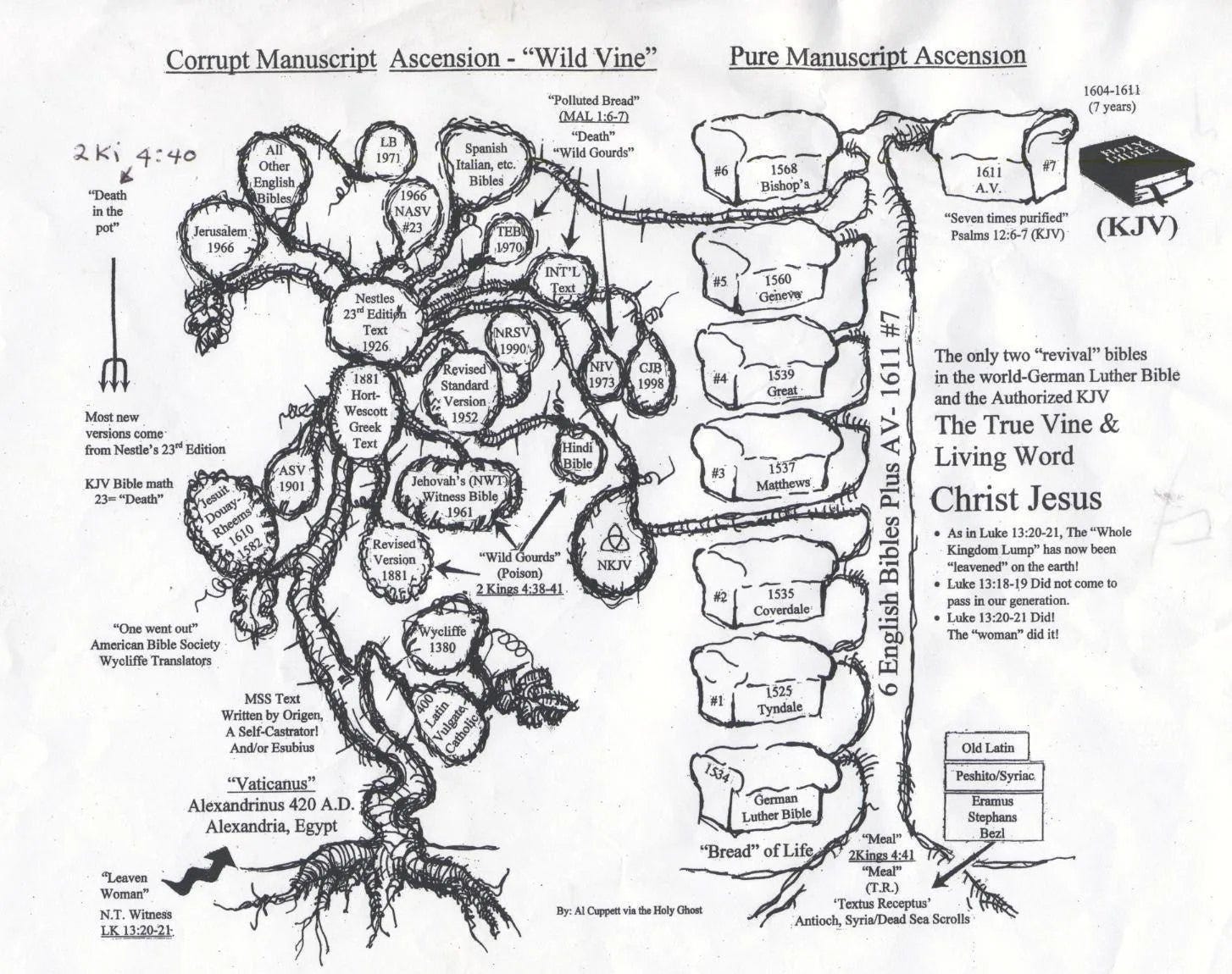
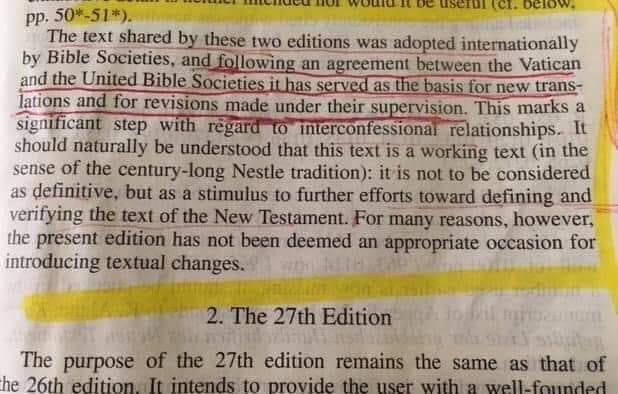

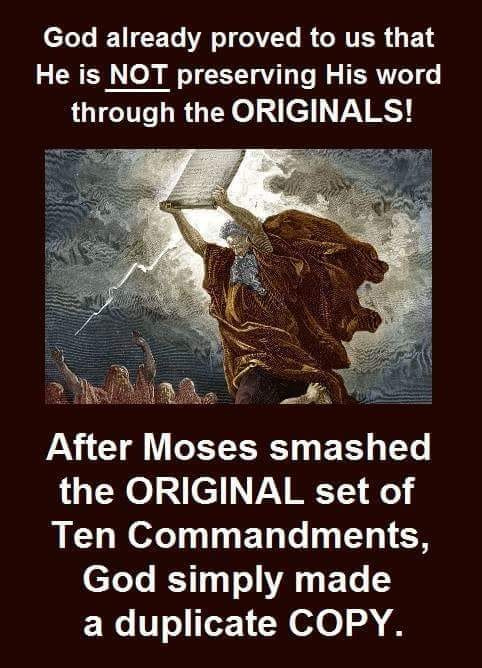
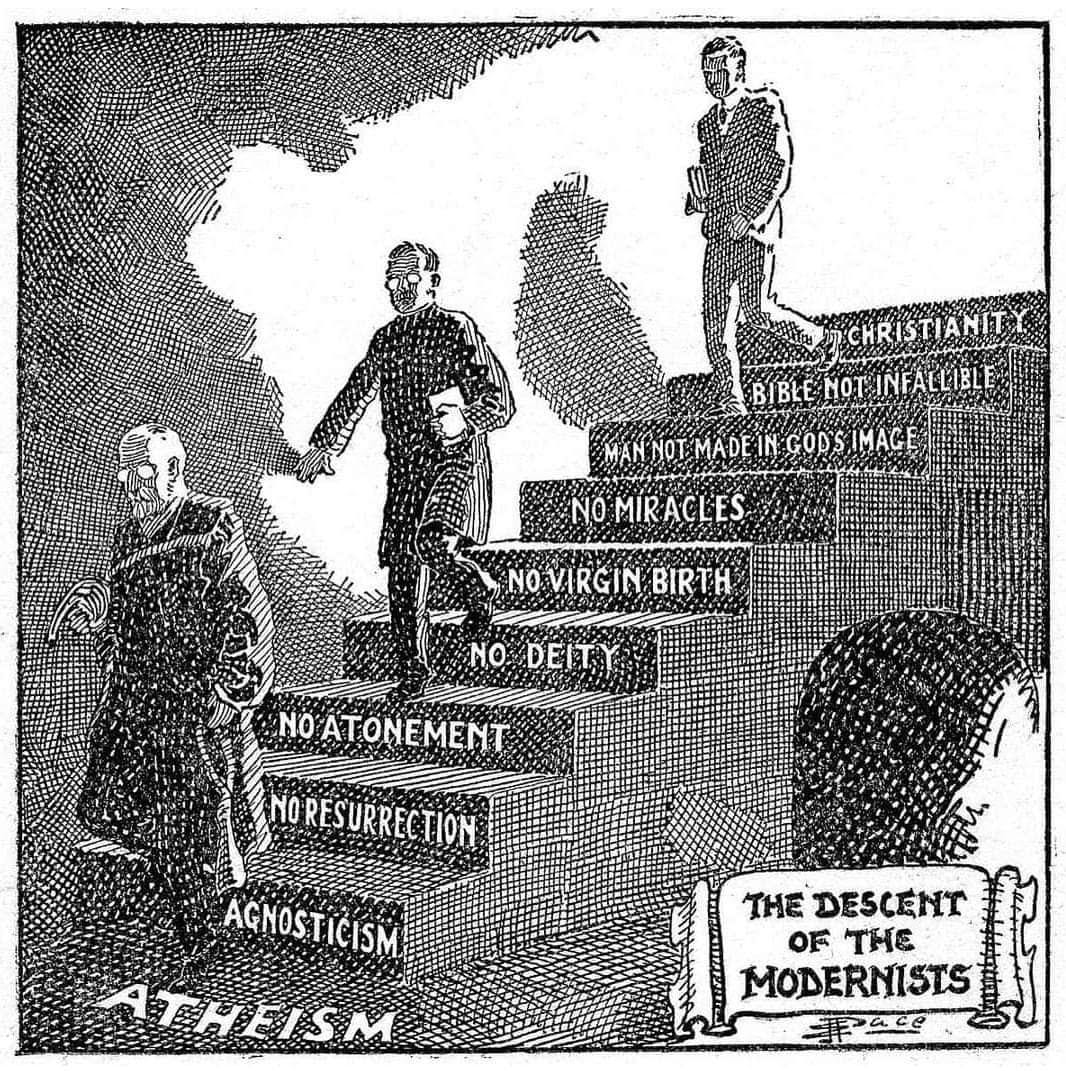
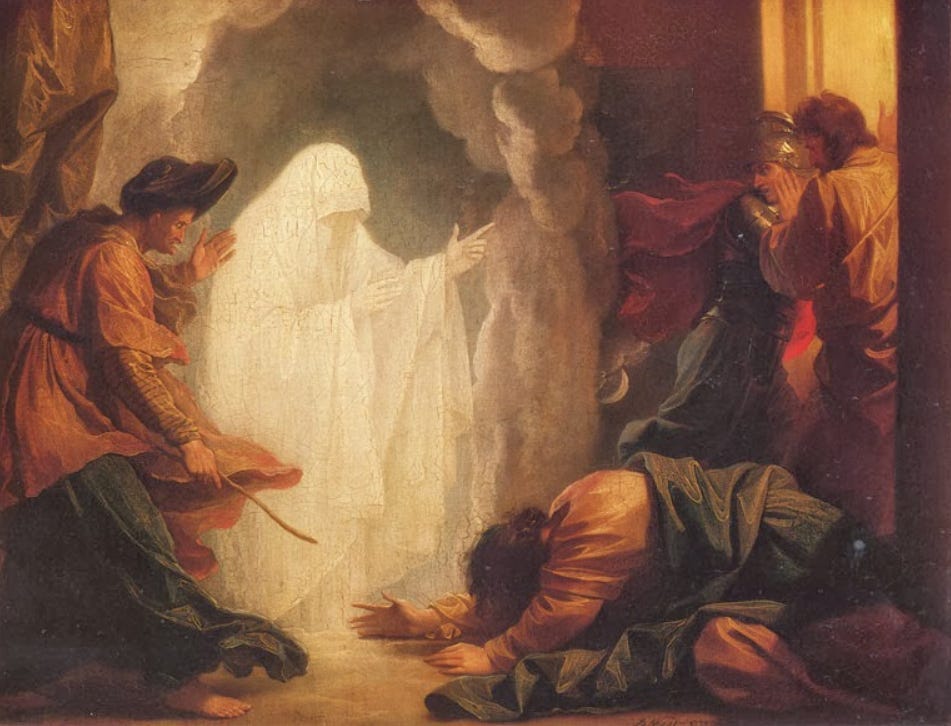






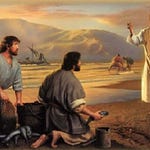

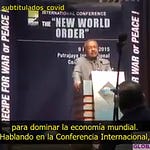
Share this post